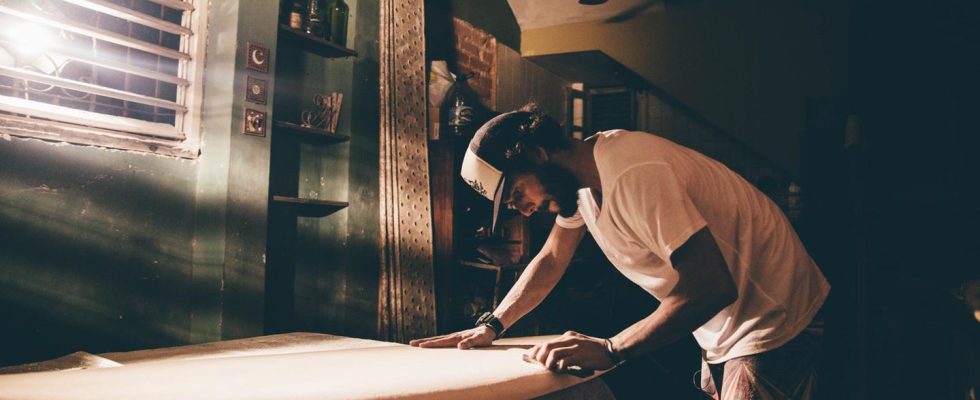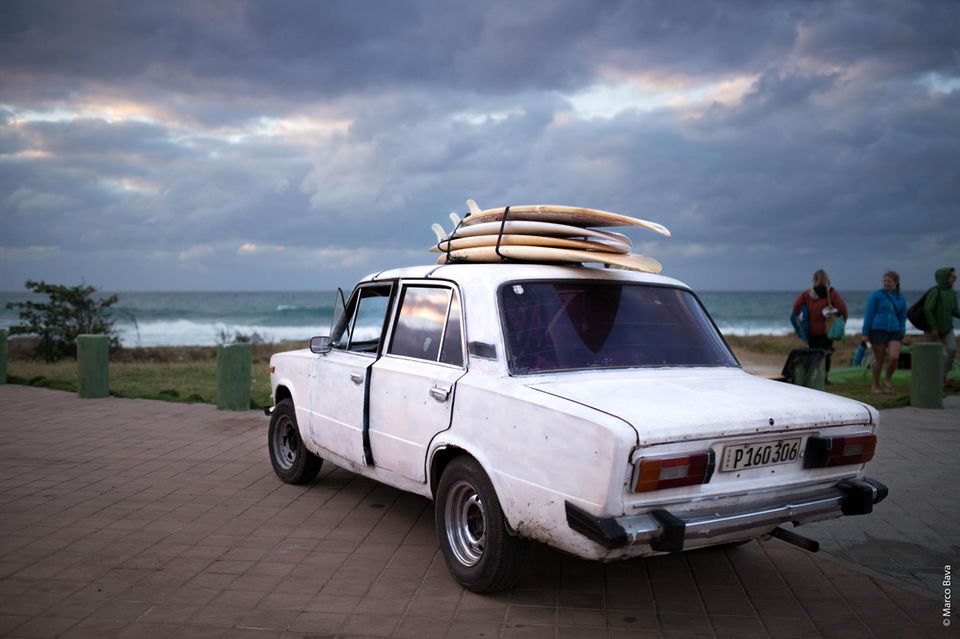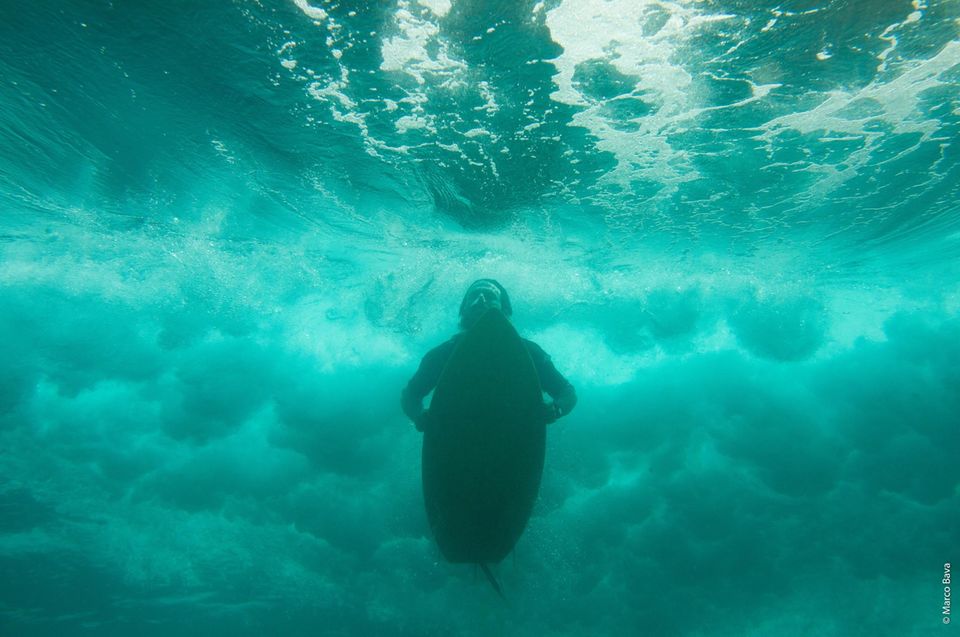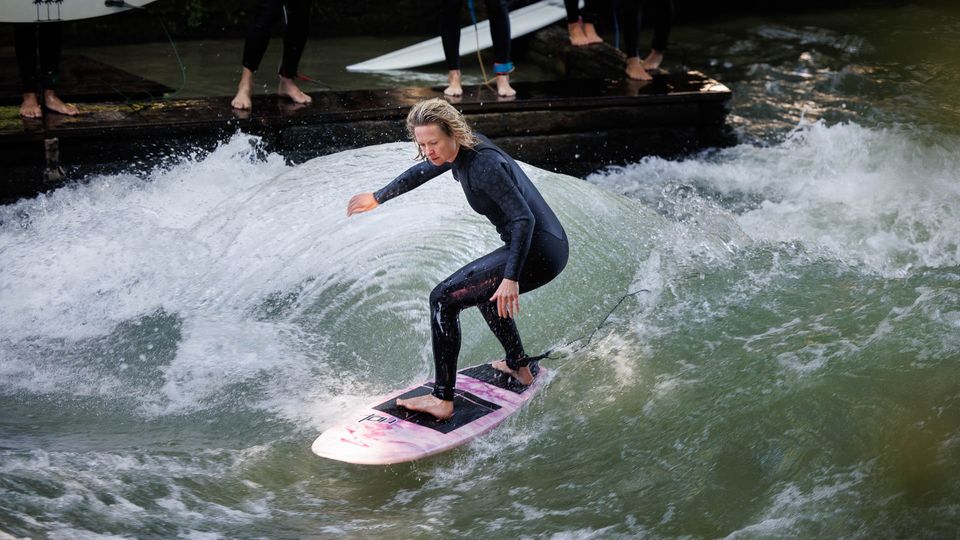There are only a few dozen surfers in Cuba. The best of them is Frank González Guerra. He wants to take part in the Olympics, but the regime has other plans.
Cuba is known for salsa, tropical socialism, Caribbean beaches, scarcity and crisis – but by no means for monster waves and the relaxed hippie lifestyle of surfers. How do you get into this sport as a Cuban?
I started as a ten-year-old, and today I’m 37. So it’s been 27 years.
This was among the worst to date crisis in Cuba, the periodo especial.
Yes, right in the middle. A friend often raved about it to me and took me to the beach after school. I have him to thank for that. At that time, a cold front was passing over Cuba, causing strong winds and waves. There were 15 guys surfing on wooden boards. Only one had a real board.
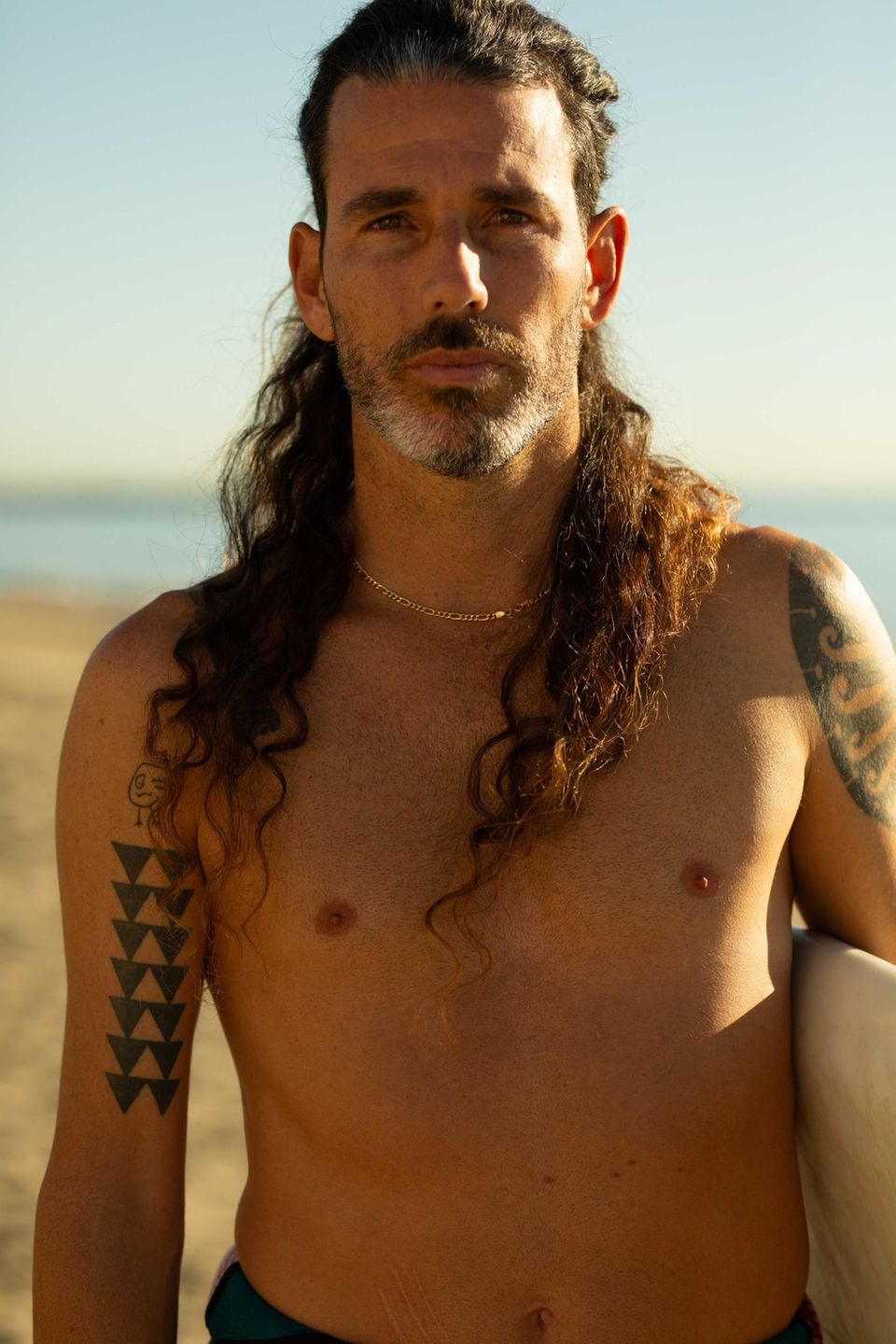
Surfer with an Olympic dream: Frank González Guerra
© Monika Mrozik
Where did he get that from?
I had no idea at the time. But certainly from the same sources as today: from tourists who leave them as gifts or to someone else Sell Cubans. But later we built them ourselves.
They were from that Sports immediately excited?
Yes, although I started on a piece of wood that was maybe 30 by 40 cm. This meant you could ride a maximum of one wave. It didn’t even have a smooth surface, it came from the trash.
There were 15 surfers back then. How many are there today?
This is constantly changing and always depends on the respective situation in Cuba. Before the last, the current crisis in Cuba began, about three years ago, there were around 350 surfers in Havana alone. After that, things went downhill rapidly again because so many people left the island. Six months ago there were perhaps 50, a maximum of 100.
You are probably the most famous surfer on the island, because an American made a film about you. How did the film called Havana Libre come about?
At the time, I worked as a dolphin trainer at the aquarium in Havana and met the future director there. He was thrilled when I showed him pictures of surfing in Cuba. He spontaneously told me that he wanted to make a film about surfing in Cuba and asked me if he could count on me. In Cuba there are many people who have many ideas and dreams, but they are rarely realized. That was different in this case.
In the USA you can buy your board from anyone in the surf shop around the corner. Where did you get your boards?
I make half of my boards myself. The others were all given to me. Because of the film, which is now being shown in Germany in a shortened form of a documentary series, I was also invited to a surfing championship in Hawaii. I got three boards there alone, all of them used. But they are the best boards I’ve ever had.
What do you build your boards out of?
Made from old boards, but also with plastic foam from old refrigerators. We also sift through the trash at a shipyard where boats are usually repaired. This is usually heavy material, not ideal. But that’s what we’re working with.
And waves? The sea in Cuba is rather calm. Where can you find big waves in the Caribbean?
That’s a secret. I don’t want to reveal that yet. But if you know your way around, you can surf in Cuba all year round. The biggest waves we have are four to five meters high. There is everything underneath. The northwest is good in winter, the east in summer.
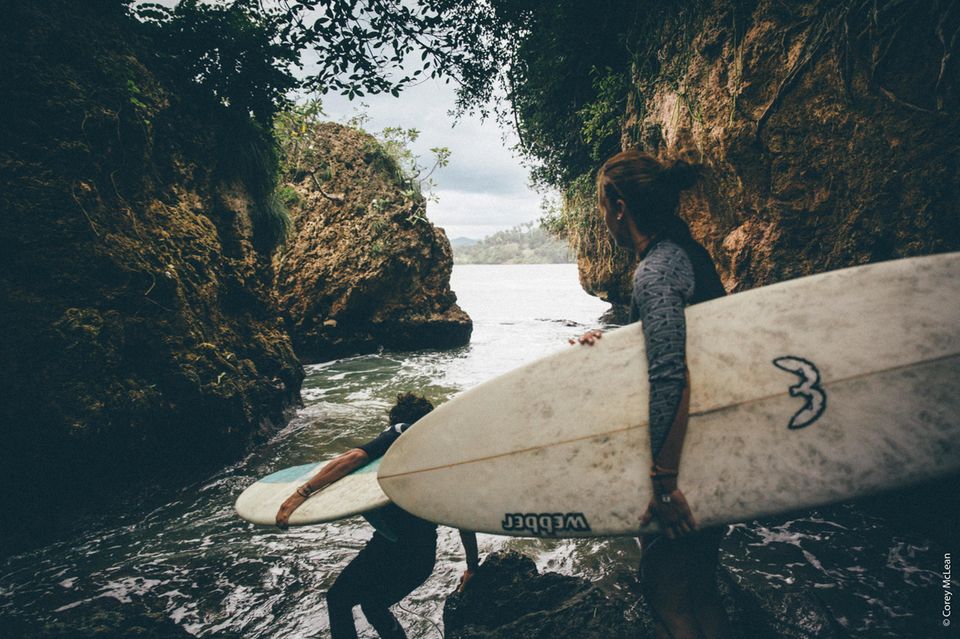
Guerra entering the water in a bay in Cuba. The island is not a typical surfing destination, but Guerra has identified some good spots
© Corey McLean
Why are you keeping the exact locations secret?
They are simply gorgeous. You have great potential. The moment they are discovered, everyone wants to do their business. Every morning you have incredible waves, no wind and no people. This is very special.
To surf you need a car and gasoline. Everything is in short supply in Cuba, today more than ever. How do Cuban surfers solve the problem?
It always works somehow, with public buses for example. With a lot of waiting and patience, something always works out and you get there.
They were invited to Peru in 2023 for the Pan American Championships, where you can qualify for the Olympics. How did that happen?
The American Surfing Federation always knew we had surfers. I guess I stood out a bit from this small group. But because of the political situation, we don’t have an association. When I started in Peru, I did so without permission from the state. I was not allowed to participate under the Cuban flag.
Old cars, simple boards: being a surfer in Cuba
© Marco Bava
Why is there no surfing association in Cuba? Is surfing illegal on Castro’s Island?
The government doesn’t want an association. Sport in Cuba is always linked to the government and politics, every decision, even when it comes to sport, is political. Every athlete who works with the Ministry of Sports must be politically correct, i.e. in line. He has to contribute to the system. He has to approve everything that serves the system.
And surfing is not in the spirit of the system?
I had a meeting with the ministry. Apparently they planned to take athletes from other disciplines to build a surfing team.
What was that about?
They would just be politically well-educated athletes. They’re not surfers. But politics comes first. It doesn’t matter that you’re a good athlete. That’s not enough.
Sun, water, waves, surf: Guerra in its elements
© Marco Bava
But it is extremely important to the Cuban state to adorn itself with successful athletes and medals?
If they can kill two birds with one stone, that’s okay, then do that. But they could have the best athlete in the world – if he doesn’t seem politically appropriate to them, he won’t be allowed to compete for Cuba. Not at the Olympics, not at the Pan American Games and nowhere else.
Are you not politically reliable in the spirit of the revolution?
Before the championships in Peru, I was told that the government didn’t have enough time to check whether I was a trustworthy person or not.
That’s why you couldn’t surf under the Cuban flag in Peru. You were the only starter who did not represent his country. How did that feel?
Bad. I felt lonely facing the entire Latin American continent.
They are still fighting for a Cuban surfing association. Does that have a chance?
It can succeed. But the way things are going, the chances are slim. If this interview is published, that will not be welcomed either. In addition, the Ministry of Sports does not have a single centavo to do anything at all. Everything they do must be financed from outside in some way – through donations or gifts.
Cuba has great interest in shining through winning medals in sport. Isn’t this an opportunity when surfing?
No, and that’s what probably the best surfer on the island tells you. Although we have waves, we lack many other things. Of training opportunities, for example. And an association that supports us.
How did you do in Peru?
I came last.
You left Cuba six months ago. They fled and are currently living in Spain. How did this turn of events come about?
Simply because I had the opportunity to do so. My grandfather was Spanish. Many Cubans dream of this. I have a family to support, but everything was lacking even though I worked until the last day. My monthly salary was the equivalent of around ten euros. Today there would be even fewer.
What do you make a living in Spain?
I give stand-up paddle lessons. I will continue to fight for an association in Cuba and hope that my voice will be heard.
Do you want to go back to the island?
Clear.
To open a surf camp in one of the places you want to keep secret?
Yes, this is an ambitious project. But I can’t say much about it yet. For this to happen, things have to change for the better in Cuba. That’s out of the question today. There is no gasoline, no building materials. At the moment the idea can only grow in your head.
When can this plan become reality?
Nobody knows. My hope is as soon as possible, maybe as early as five years. We will see.

